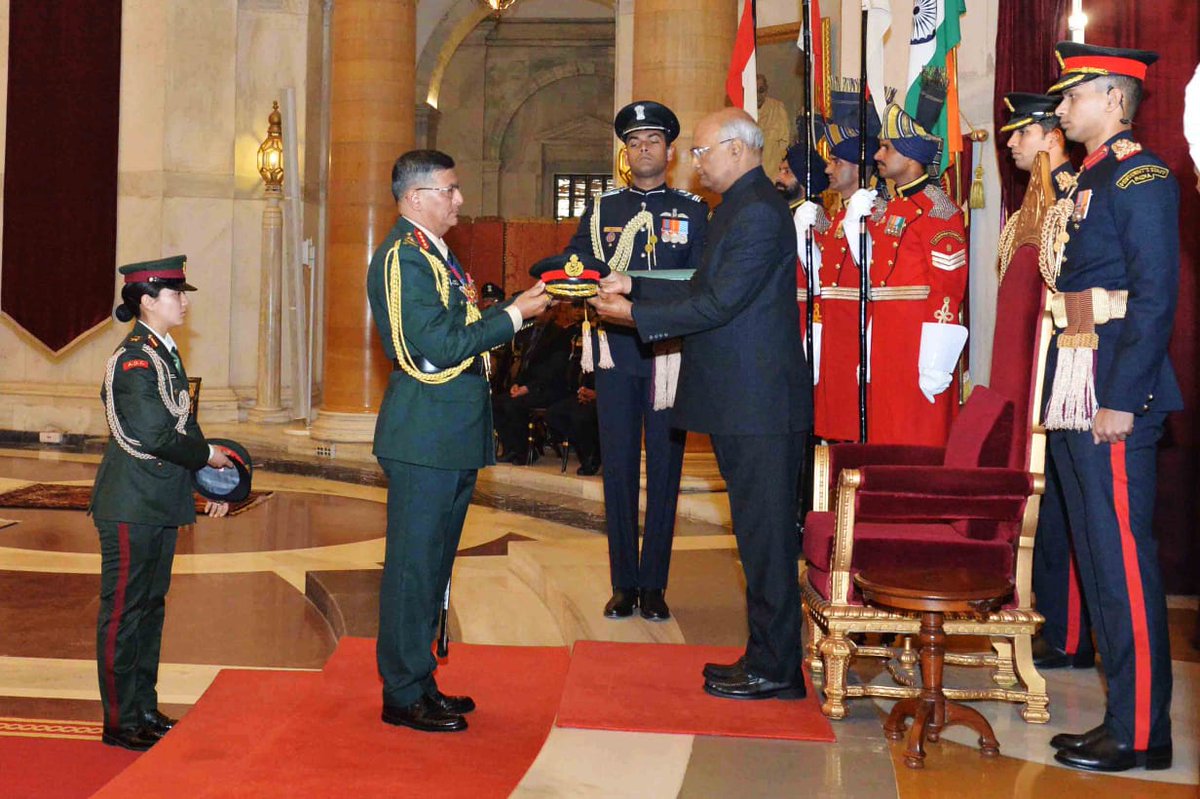Apropos The Statesman 17 December 2018 :Darjeeling News Service -Darjeeling 16 Dec 2018 – caption “Darjeeling Seminar talks ‘crucial’ Sixth Schedule”.
The contents of this discourse is in response to the deliberations in the recently concluded Seminar on Sixth Schedule. Lookin at the legality aspects of the Sixth Schedule (as an aspect of Excluded Areas /GoI Act of 1935/GoI Order 1936) is that, it is applicable only to the erstwhile Province of Assam, whereas the Fifth Schedule (Partially Excluded Areas/GoI Act of 1935) is applicable to rest of India (to areas mentioned in the Order 1936). The implications of the provisions intended to safeguard in protecting the ethnological identity of the inhabitants within the designated areas.
The provisions of the legality regarding the “transfer of identity” transferred in toto in the Constitution of India (1950) and operationalised in 1952 with the functioning of the first elected Parliament in India. That is, the two provisions of (i). Excluded Areas & (ii) Partially Excluded Areas (PEA) provided safeguard mechanism within Article 244(1) –Fifth Schedule corresponding to (ii) Partially Excluded Areas, and Arts. 244(2) & 275(1) – Sixth Schedule corresponding to (i) Excluded Areas .
The Order of 1936 lists Darjeeling District as PEA. Under the Fifth (1955) and Seventh (1956) Amendment purported to effect recommendation of the State Reorganization Commission (SRC) – legalizing genesis of state formations in India, States and Union Territories for democratizing the designated areas with the House of the People, readjustment after every census and establishment of new High Courts, High Court Judges etc.
Under the auspices of SRC (1956-2000) twenty (20) States and UTs were formed inclusively based on the provisions of Fifth and Sixth Schedules exhausting the list of the Order of 1936 except Darjeeling District. Which is the only remaining PEA, that is yet to get a designated right to self-assertion, and governance. This constitutional aspect is very difficult to untangle, as a result of which the ordinary citizen, nay in fact, even professed learned, are unfamiliar of this knowledge.
Hence the confusion, since inception, among the genuine seekers demanding autonomy/state which in a political sense convey the right to internal self-determination with democratic rights predetermined only for designated areas i.e. within the framework of the specific Articles of the Constitution.
With an eye to the above context, it is fairly easy to infer that demanding internal right to self-determination or a state, if you will, is doubtless a democratic right but specific only to certain areas in India (Order 1936). In the Constitution of India the incorporation of Articles 244(1), 244(2), & 175(1) and in fact the Schedules (12), outlines a detailed account of providing the legal aspects of self-governance under a democratic republican setup.
This means that the sense of democratic rights alone is insufficient to demand autonomy or internal self-determination (self rule/state). The latter requires a legal basis (the constitutional law and history) since 1600-1935 and 1950/52 thereafter to present times, and the roadmap enshrined by the Constitution for the entire nation needs to be followed.
Hence it is surmised from the above undertakings, that the Seminar held in Darjeeling on the Sixth Schedule requires specific understanding provided by the fact, at this moment of time since 2012 the Fifth Schedule is partly established [Art. 244(1) Part B rule 4, Tribes Advisory Council] as an aspect of section 2 and 3 (a), (b), and (c) wherein “The Governor may make rules prescribing or regulating, as the case maybe”.
In fact, it might be reminded at the commencement of the Constitution 1952-56 the same provision Part B rule 4 was established in Darjeeling District, but when West Bengal Province transferred to West Bengal State under the First Schedule (Arts 1 and 4), however safeguarding the identity of Darjeeling District by providing exclusivity and inclusivity under the Absorbed Area (Laws) Act 1954 on account of Partially Excluded Area status, never got implemented.
The following historical chronology substantiates the intent status of Fifth & Sixth Schedule (Constitution of India) originating in sequence to the Govt. of India Act, regulations, laws per-se the following
- Robert Clive 1765
- Regulation1, 1796
- Regulation X of 1822
- Bengal Eastern Frontier Regulation 1873 (Inner Line Permit)
- The Govt. of India Act, 1870
- The Scheduled Districts Act, 1874
- The Indian (Foreign Jurisdiction) Order in Council 1902
- Indian Councils Act 1909 (Morley-Minto Reforms OR Minto-Morley Reforms)
- The Govt. of India Act 1915-1919, (inserted 52A …provision as to backward tracts in 1919)
- The Indian Statutory (Simon) Commission Report 1930: The Backward Tracts
- The Govt. of India Act Excluded Areas & Partially Excluded Areas 1935 (section 91: EA&PEA) & section 92 administration of EA&PEA)
- The Government of India (Excluded and Partially Excluded Areas) Order 1936
- The Indian (Foreign) Jurisdiction) Order, 1937
- The Indian Independence Act 1947
- The India (Provisional Constitution) Order 1947
- The (Foreign) Jurisdiction Act 1947
- The Merged States Act, 1949The Requisitioned Land (Apportionment of Compensation) Act 1949
- The Constitution of India Part XXI Temporary, Transitional and Special Provisions
- Backward Classes Welfare in West Bengal 1952-56 – Fifth Schedule Part B rule 4 -Art.244(1)to the Constitution of India
- The Absorbed Areas (Laws) Act 1954
- The Bihar and West Bengal (Transfer of Territories) Act 1956: The States -First Schedule (Arts.1&4) Name 14: West Bengal
Author’s note:
- Establishment of Tribes Advisory Council (TAC) under Part B 4(1) of the Fifth Schedule. Late Mr. T. Wangdi from Darjeeling, elected from Phasidewa Constituency nominated as the Vice Chairman of TAC. Besides late Mrs. Sabitri Devi of Kurseong a TAC member, and late popularly known as David Babuni (Mrs) of Kalimpong. There were others representing local bodies from Kurseong, Kalimpong and Darjeeling.
- After West Bengal State was formed, peculiarly mention of TAC was withdrawn. This accounts for the perception, that the Darjeeling District was merged with “First Schedule (Arts. 1 and 4) [14] West Bengal “The territories which immediately before the commencement of this Constitution… comprised in the Province of West Bengal or were being administered as if they formed part of that Province in the territory of Chandernagore … Chandernagore (Merger) Act 1954 … The Bihar and West Bengal (Transfer of Territories) Act 1956”.
- The Merger Act 1954 is perceived as the safeguard provided for Darjeeling District in the Province of West Bengal transferred to the State of West Bengal assuming the content of the Absorbed Area (Laws) Act 1954 applied to Darjeeling District in consequence of being a Partially Excluded Area (as above) integrated in the union of India under provisions of the Fifth Schedule: Art. 244(1) under Part B 4 under administration of the TAC. After a span of 56 years (1956-2012) TAC is once again established clearly indicating, the identity of the inhabitants under the Absorbed Area Act 1954 for transfer to its original whole from which it was absorbed and which process is seemingly on the anvil by the guardians of the Constitution i.e. President of India vide the Supreme Court. The former is the guardian of the provisions of the Fifth & Sixth Schedules (and the Union Territories) concerning States. Doubtless in all the States formed under the provision of the Absorbed Area Act 1954 provided the right to internal self-determination under provisions of the Fifth & Sixth Schedules. However subject to the GoI Act of 1935 section 92 defining the administration of excluded areas & partially excluded areas.
22. Establishment of TAC (Kolkata Gazette notification No.820 BCW/3C(MC)-08/96 dt:06 March 2012 Fifth Schedule Art.244(1) Part B rule 4)
Note: TAC is crucial in understanding the Absorbed Area Act eventually to terminate in time, however only after legal functions is transferred to its original unit. In sense, the scheme is analogous to the formation of numerous states (20) in India under the States Reorganization Commission (SRC) 1956 (Seventh Amendment).
That being so, it is perceived the following Ordinance/Bill placed in Parliament in 2013 (however pending till date) is indicative of some major decisive action by parliament (by law) implementing by executive decision. i.e. amendment of the Constitution by a simple majority (Art. 368) and not requiring the two third majority. That the Ordinance/Bill is a constitutional event being conducted towards its targeted lawful purpose and not otherwise like other ordinary Bills. This is the content of the following item 23.
23. The Readjustment of Representation of Scheduled Castes and Scheduled Tribes in Parliamentary and Assembly Constituencies’ First Ordinance 2013, 2 of 2013 DT: 30 January 2013/ First Bill No. XII of 2013 Dt: 14 February 2013.
Note: This Ordinance/Bill is perceived as the one and only final solution to all the above citations (0123) being the chronological history 1822-2019 before general elections assuming the above Bill is based on Arts. 82,170, 330 & 332, which seems to have been marginalized in the Parliamentary Elections of 2014 and the state legislative elections of 2016 .
Understanding based on the above Articles, an NGO based in Kalimpong, Public Interest Committee for Scheduling Specific Areas (PICSSA) has petitioned the Supreme Court under an RTI (Diary No. 13247 Year 2017) filed dt: 25/04/2017 for a final decision.
Those interested to read the text of the petition, may long on to site (PICSSA).
Notwithstanding PICSSA following which the leading political organizations too have recently demanded vide press releases legal ramifications of Darjeeling District and adjoining areas (presumed as historical 10 Dooars). The demands pursued are
- GTA Chairman demanding Scheduled Area provisions of Fifth Schedule.
- Col Alley (GJM –Bimal Gurung) demanding invoking Art.3(a).
- GNLF still demanding implementation of Sixth Schedule since 2007 but updating by inserting statehood or any such thing (presumably by law),
- The press statement by Chief Minister of Sikkim that the Limbu & Tamang (Scheduled Tribes) Bill is ambiguously asserted to be passed before 2019, and
- The small state formation forum (Secy Manish Tamang) to which Jan Andolan Party (JAP) is also in the kitty is a sound advise but except the only fact, that no new states of the union creation is provided legal sanction in writ.
In taking cognition of all these press releases by organizations in the forefront, one is conducted in reverting back to the commencement of this discourse i.e. “Darjeeling Seminar talks ‘crucial’ Sixth Schedule” it maybe finally assuaged that something surely is around the corner and that the boulder blocking the path to the destination of Darjeeling District and the Dooars is about to be bulldozed before the forthcoming general elections.
It is presumed therefore, after taking all hues of understanding from above citations 1-23 including the press releases (a-d) that the pending tribal bill will see the light of day either in the ongoing session of parliament, if not, surely in the next parliamentary session before 2019 general elections.
This is the picture in the constitutional crystal ball, you can refer to author’s article Future of Darjeeling District in the constitutional crystal ball.
As this seems to be the constitutional roadmap perception of all the contentious issues since 1986 till 2019 (without crossing fingers), best of luck to all, as the better days certainly seems to be insight provided by the Constitution of India, which is supreme in constituting the rights and duties of every citizen of India.
[WRITES: Karma T.Pempahishey writes under the nom-de-plume “Hillman –The Analyst. He can be reached at: karmapempahishey@gmail.com]
…………………………………..
Further references
- 1950-52 Constitution of India :
Fifth Schedule [Article 244(1)]: Provision as to the administration and control of Scheduled Areas and Scheduled Tribes.
Part B Administration and Control of Scheduled Areas and Scheduled Tribes 4. Tribes Advisory Council
Part C Scheduled Areas
- Scheduled Areas-(1) In this Constitution, the expression “Scheduled Areas” means such areas as the President, may by order declare to be Scheduled Areas (a,b,c,d)
(2). The President may at any time by order (a,b,c,d)
(a). direct that the whole or any specified part of a Scheduled Area shall cease to be a Scheduled Area or a part of such an area
(b). alter, but only by way of rectification of boundaries, any Scheduled Area;
(c). on any alteration of the boundaries of a State on the admission into the Union or the establishment of a new State, declare any territory not previously included in any State to be, or to form part of, a Scheduled Area;
1952-1956 Backward Classes Welfare in West Bengal
Backward Classes Welfare in West Bengal (1952-1956) … Under rule 4 of the Fifth Schedule to the Constitution, Part B, a Tribes Advisory Council was established consisting of 17 members including the 12 Tribal MLAs.
- 820 BCW/3C(MC)-08/96 -: 6th March 2012: In exercise of the power conferred by sub paragraph (3) of 4 of the Fifth Schedule to the Constitution of India, the Governor is pleased hereby to make the following amendments in the West Bengal Tribes Advisory Council Rules 1953, published with this Department notification No.1282TW, dated the 25th August 1953:
1.(a).(i) not more than 20 members
(ii). not more than 15 ST/MLAs
(iii). One ST MP
- 1280 T.W. dated Calcutta 25 August 1953… President has directed a Tribes Advisory Council established in State of west Bengal conferred by sub paragraph (1) of paragraph 4 of Fifth Schedule to the Constitution of India, the Governor is pleased to establish Tribes Advisory Council .
No.1282 T.W. dated Calcutta 25 August 1953 …. Powers conferred by sub paragraph (3) of paragraph 4 of Fifth Schedule to the Constitution of India, the Governor

Darjeeling – history has been very unkind to the people here






Leave a comment